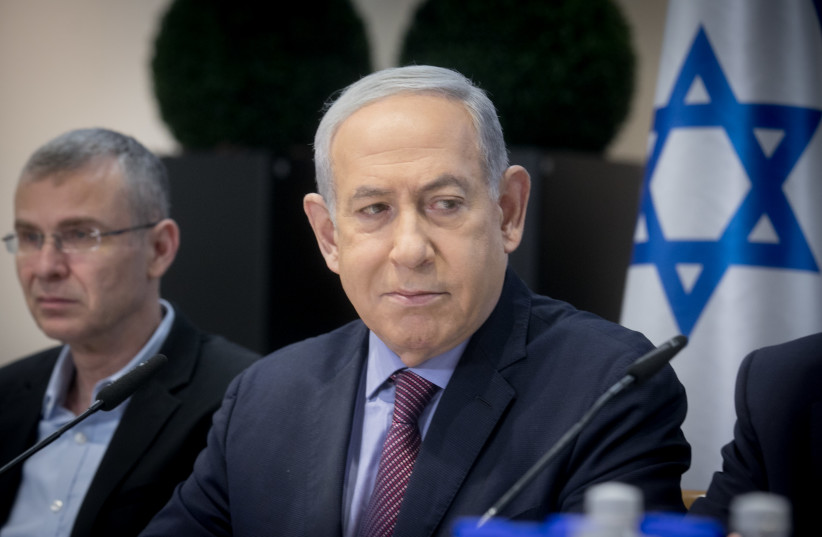If one thing is clear about the current Israel-Hamas conflict it is that it has changed the internal debate within Israel for good. The war has revealed deep splits within the Israeli public. Maybe they were always there, lurking beneath the surface. But now the monster has been released in all its glory, like a horrific vision from the Book of Daniel.
The slogan being bandied around on the media is “United we will be victorious.” But such unity is at best paper-thin. How can the hundreds of thousands of Israelis who were demonstrating for months against what they perceived as an anti-democratic and corrupt coalition led by Prime Minister Benjamin Netanyahu suddenly become one with the same object of their protests?
The real issue at the center of the country’s complex life is rooted in its identity. This is an ongoing, existential question. Is it a Jewish state or a nationalist one? Is it defined solely by its Jewish traditions, or is it connected to the idea of a liberal-democratic statehood on the lines of a Western democracy? Is one an Israeli or a Jew first?
The question of Israeli identity: Jewish or democratic
This is not a novel riddle. Its roots go back to the very origins of the Jewish people. But under Netanyahu’s current coalition, the ultra-Orthodox parties have been joined by ultra-nationalists supporting Netanyahu’s Likud party, which itself has become more extreme.
The prime minister has still not accepted any responsibility for the causes of the Hamas-driven war. Instead, he is desperately gambling on a successful military campaign against Hamas to prove that he is the “savior of Israel” and thus still capable of running the country – as he has for a total of 16 years.

Polls suggest that if he ran an election today, he would lose badly. Very few Israelis trust him, including members of his own party, not to mention the various military and security groups whom he has accused of failing the people. The issue of the hostages still held by Hamas and Islamic Jihad is another stumbling block for Netanyahu.
However, the real issue goes way beyond the PM. Israel has yet to decide if it wants to be a Jewish state, beholden to tradition, however that is defined, or a secular democracy in which “everyone did as he saw fit” (Judges 21:25). From a secular perspective, one can ask the question of whether or not classical Zionism has produced the “New Jew” as intended. Or has this new Israeli gone too far in shedding all traces of Jewish tradition? Have they – in Netanyahu’s words – “forgotten what it means to be Jewish”? Again a paradox. Netanyahu, for all his political sharpness, has shown a Machiavellian cynicism when it comes to religion. He uses it for his own purposes and not for the sake of heaven, or even for the sake of Israel, but rather for the sake of his own power base.
What seems necessary, now more than ever, is for Israelis of all shapes and sizes to reconcile themselves to the fact that we are a deeply divided lot, but that this should not necessarily prevent us from living in harmony with one another, religious and secular, Jew and Arab, Christian and Muslim. As the late Jerusalem-based Dominican monk Marcel Dubois predicted, “If people in Jerusalem can learn to respect one another, it will the basis for peace between peoples all over the world.”
But here comes the twist. If Israel is to be a Jewish and democratic state, it has to define what those terms mean. Does total acceptance of Halacha (Jewish ritual law) become the only criterion by which one measures an individual’s Jewishness? Judaism, both theoretically and practically, is more than Halacha. Otherwise, we would have to say that the haredi version of Judaism is correct. But it is obviously not, since the haredi world on the whole does not accept the State of Israel or Zionism as legitimate, despite the numerous sources in the Torah that posit the land as being given to the people of Israel by God in perpetuity.
The Religious Zionists, on the other hand, accept this as a basic fact and embroider it by adding fanatic messianic claims that are racist and profoundly anti-democratic. These claims contradict the Torah in which care of the strangers (i.e., non-Jews) is mentioned 48 times. The most fervent of the settlers in the West Bank pay no attention to these warnings and happily destroy private property, uprooting olive trees and much else, in order to “prove” their sovereignty over all the land.
Secular Israelis, who are for the time being in the majority, have for the most part given up on Jewish tradition, investing their identity in their loyalty to the state, the language, and the people. They will often use the texts and symbols of tradition, of which there are masses. In terms of their daily life, however, Judaism does not interfere with their conscience or their motivations. They do not see themselves necessarily as different from other peoples or cultures. They are nationalists, in the narrowest sense.
What therefore needs to be addressed is how to retain the spiritual heritage of Judaism while fulfilling our obligations to state and people. This is not a simple process but rather a long and difficult path which is urgently needed if Israel is to maintain its unique identity, both internally and externally. ■
